Awards
Junbo Zhao from UConn College of Engineering Wins NSF CAREER Award
UConn and Yale Drive Quantum Innovation with State Support
The Quantum Initiative at UConn, in partnership with Yale University, is a dynamic and collaborative effort dedicated to advancing quantum science through interdisciplinary collaboration. By fostering a community through joint seminars, workshops, and outreach events, QuantumCT is working towards establishing a premier quantum center in Connecticut.
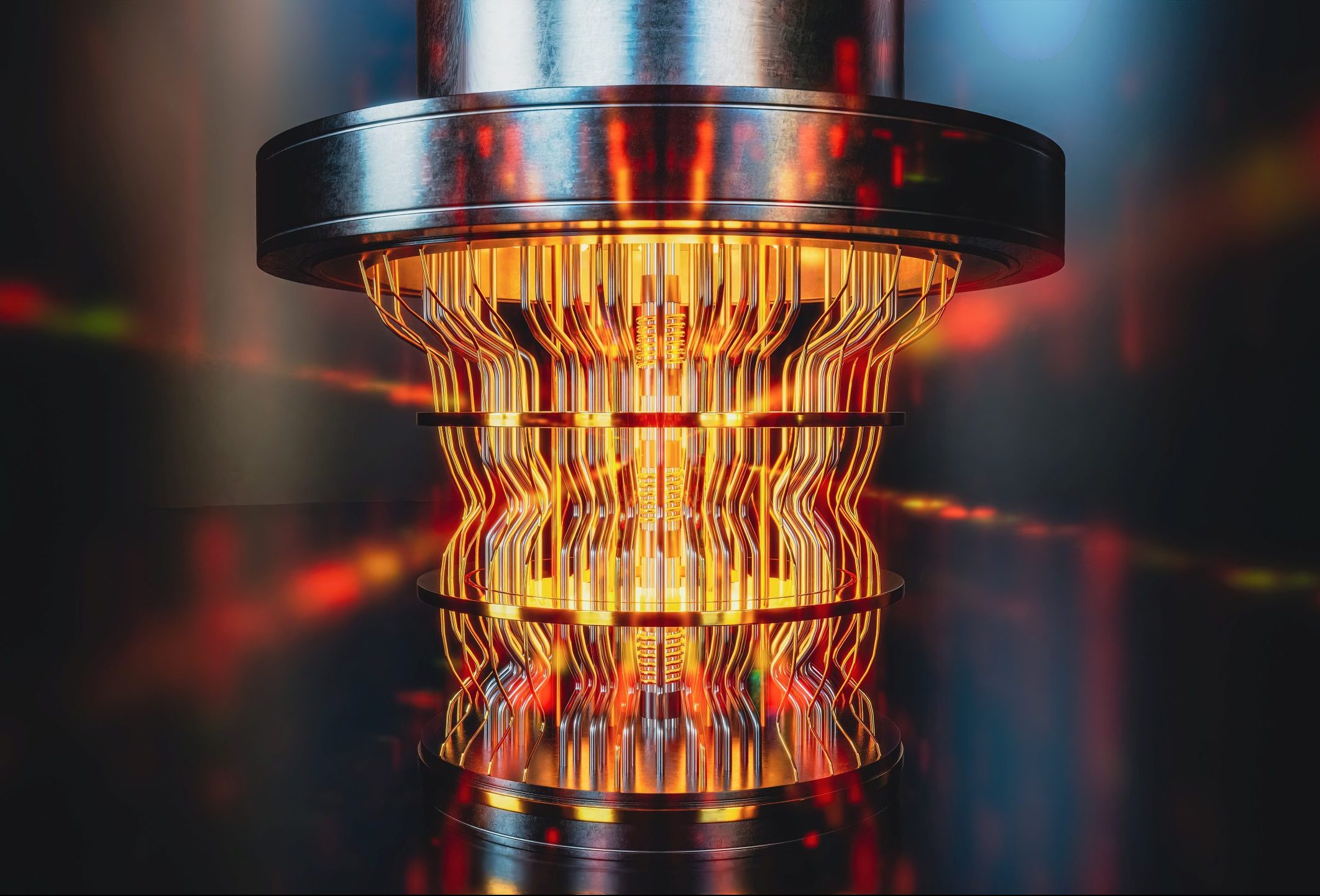
Program Highlights and Recent Developments
QuantumCT has been making significant strides, particularly with the recent announcement from the Governor of Connecticut. In a bold move to position Connecticut as a leader in innovation, the Governor announced a $100 million investment aimed at bolstering research and development in cutting-edge technologies, including quantum science. This substantial investment underscores the state’s commitment to fostering advancements in this transformative field.
A key development for QuantumCT is the introduction of Quantum Seed Grants, which are funding innovative solutions to real-world problems. Nine Connecticut-based research groups have received one-year seed grants to tackle challenge problems issued by corporate partners. These projects aim to develop algorithms for simulating molecular drug actions, invent accurate sensors for extreme environments, and address other critical needs in industries like aerospace and biotech.
Yale brings world-renowned expertise in quantum science and technology to the table, complementing UConn’s strengths and facilitating a robust exchange of ideas and resources. This partnership is vital in addressing the complex challenges in quantum research and development. Yale’s Vice Provost for Research, Michael Crair, highlights the importance of these collaborations, stating, “These grants are fertilizing creative, potentially transformative projects in quantum science and technology across several key industries, all of which are central to Connecticut’s present and future economy.”
QuantumCT has been active in hosting events that bring together leading minds in quantum science. For instance, Josiah Sinclair from MIT-Harvard CUA presented a colloquium at UConn on a new platform for quantum science in early 2024, featuring programmable arrays of single atoms. Events like this highlight the initiative’s dedication to cutting-edge research and collaboration.
Looking ahead, QuantumCT aims to position Connecticut as a global hub for quantum education, job training, and research innovation. The collaborative efforts of UConn, Yale, and industry partners are paving the way for a faster pace of quantum innovation. Pamir Alpay, UConn’s Vice President for Research, Innovation, and Entrepreneurship, notes, “These seed grants will fuel not only quantum discovery but also career opportunities in a high-demand STEM field.”
With the recent $100 million investment from the state, QuantumCT is well on its way to driving forward the next wave of technological advancements, transforming industries, and creating new economic opportunities. For more information about upcoming events and the latest research from QuantumCT, visit QuantumCT.org.
UConn Secures $10.5 Million AFRL Contract to Propel High-Speed Aerospace Innovations

UConn has secured an additional $10.5 million contract from the U.S. Air Force Research Laboratory (AFRL) to support its aerospace manufacturing research, bringing total project funding close to $30 million. This partnership focuses on overcoming manufacturing challenges in aerial systems designed for high speeds and altitudes. Seven faculty members, along with graduate and post-graduate students, will tackle welding-related issues and develop advanced high-temperature materials. These interdisciplinary projects span material science, mechanical engineering, civil engineering, and chemistry.
Professor Rainer Hebert, the primary investigator and Director of the Pratt & Whitney Additive Manufacturing Center, emphasized the value of integrating government, industry, and academia in research. UConn’s collaboration with AFRL, which began in 2018, involves major industry partners like Raytheon, Pratt & Whitney, and Collins Aerospace. This partnership has sharpened UConn’s focus on application-relevant research, distinguishing their work from industry projects constrained by production schedules.
The new grant will fund a four-year research project combining experimental and theoretical approaches to advance materials for RTX, formerly Raytheon. Research will explore the behavior of non-metallic, high-temperature materials and additive manufacturing of refractory metals. Additionally, the project will investigate the design and processing of metamaterials capable of modifying heat and electromagnetic fields for improved thermal management.
This continued collaboration underscores UConn’s role as a valuable partner to AFRL and key industry players, driving advancements in aerospace technology and contributing to Connecticut’s economy. Faculty members who will work on projects covered through the $10.5 million contract include Mark Aindow, Pamir Alpay, Osama Bilal, Lesley Frame, Jeongho Kim, Rainer Hebert, and Steven Suib.
Click here for more information about the AFRL project funding.
UConn Leading Federally Backed Regional Initiative to Defend Electric Grid from Cyberattack
UConn Awarded $4.5M DOE Grant to Benefit Grid Reliability for Transmission and Distribution Systems
C2E2 Graduate Student Research Summit in Sustainability
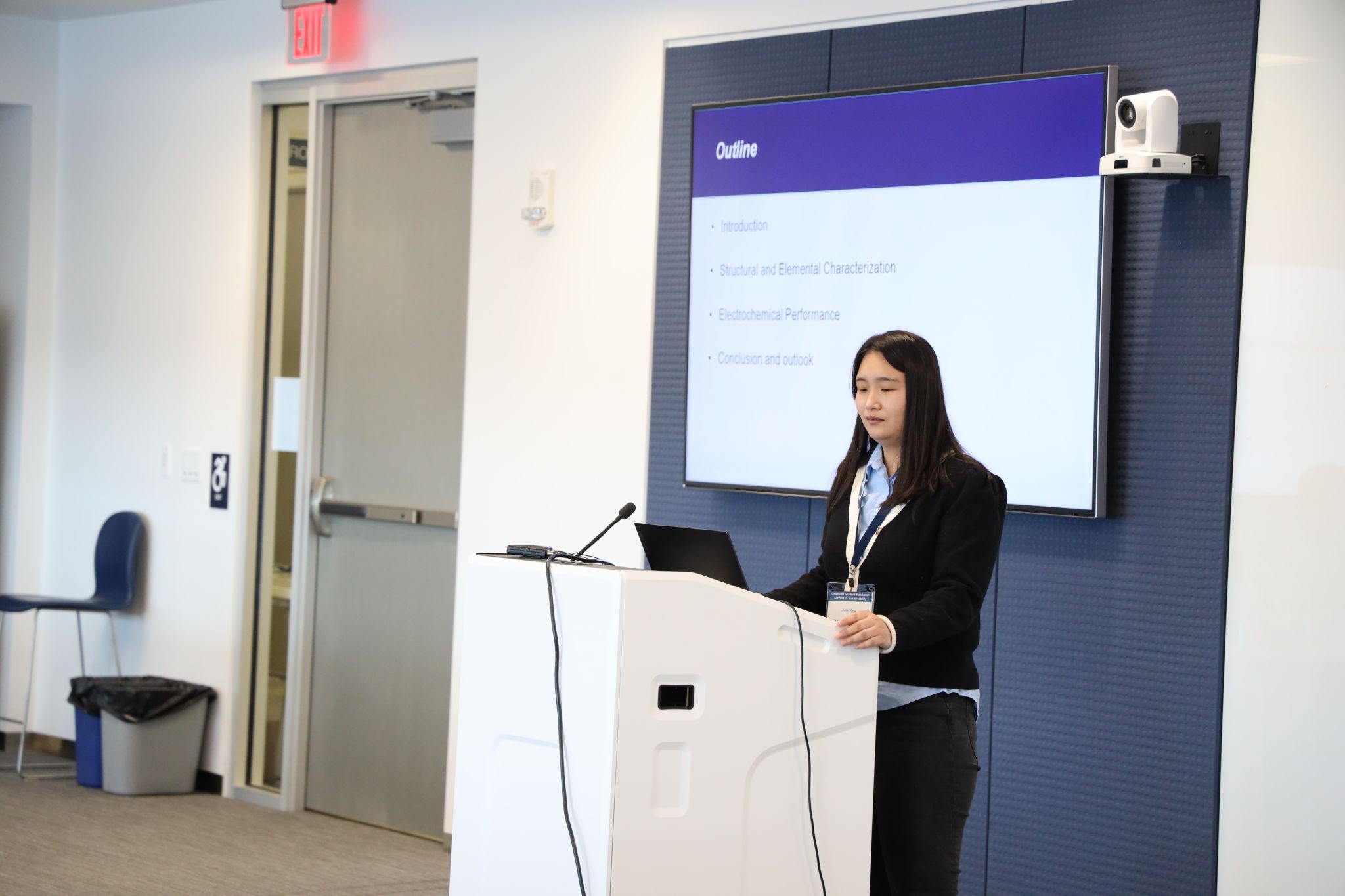
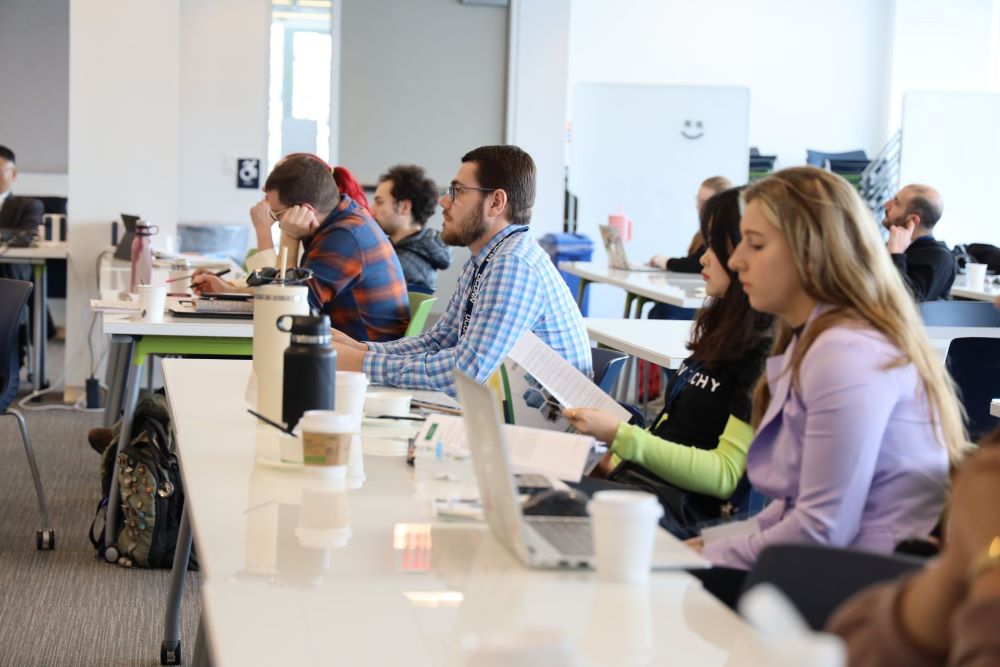 The Center of Clean Energy Engineering (C2E2) hosted its first C2E2 Graduate Student Research Summit in Sustainability on February 16th and 17th at IPB. Organized by graduate students Alanna Gado and Leila Chebbo, the event featured 30 student presentations covering diverse research topics such as cultivated beef, air filter effectiveness, desalination, desulfurization, space exploration, electrolyzers, fuel cells, and membrane applications.
The Center of Clean Energy Engineering (C2E2) hosted its first C2E2 Graduate Student Research Summit in Sustainability on February 16th and 17th at IPB. Organized by graduate students Alanna Gado and Leila Chebbo, the event featured 30 student presentations covering diverse research topics such as cultivated beef, air filter effectiveness, desalination, desulfurization, space exploration, electrolyzers, fuel cells, and membrane applications.
The summit offered a venue for doctoral candidates to share their ongoing research and engage in discussions about sustainability challenges. Participants had the opportunity to refine their presentation skills and receive feedback from both peers and faculty members. Networking sessions facilitated connections among students and others within the C2E2 community.
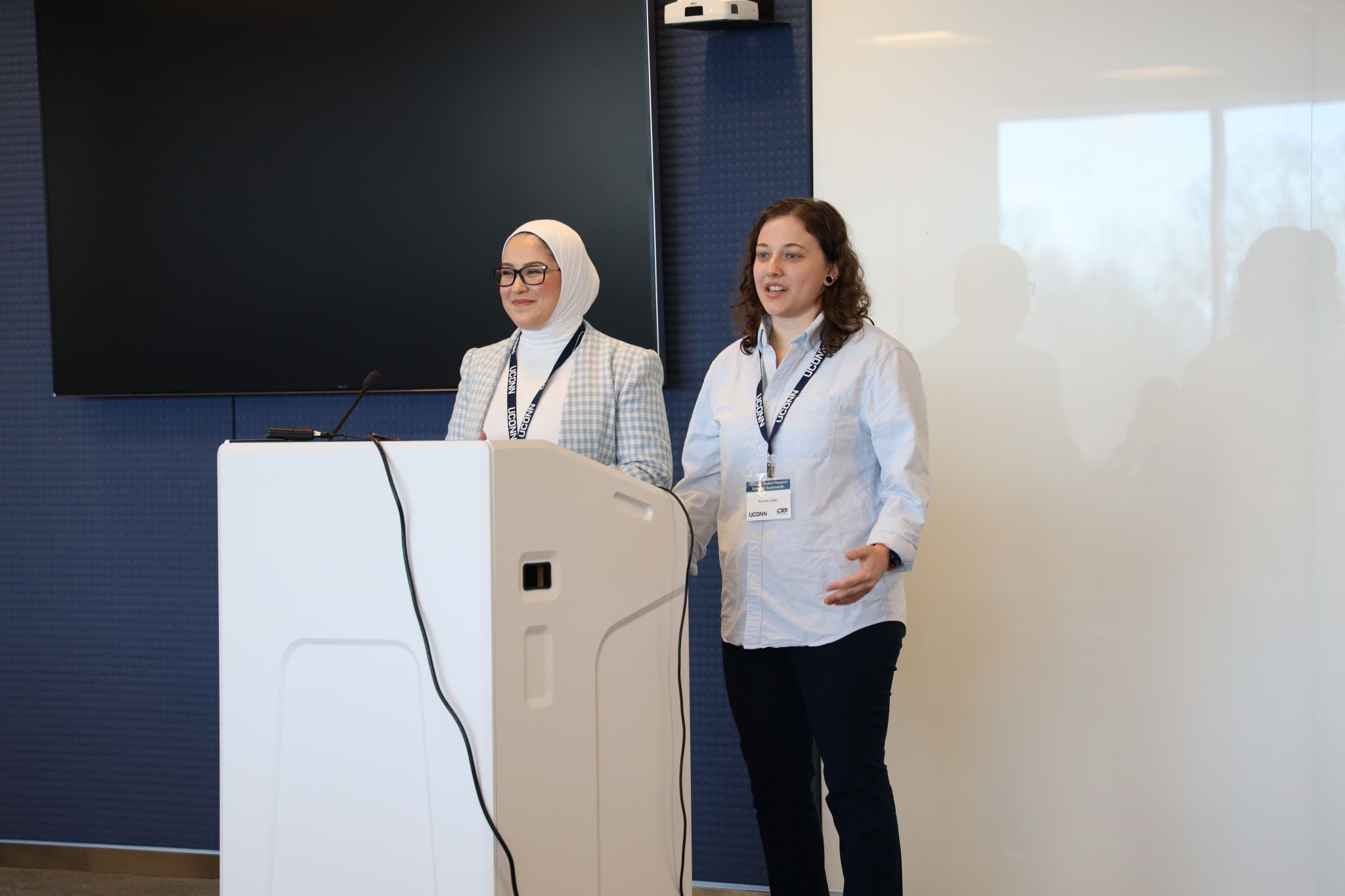
Presentations were evaluated by the audience, with awards given in three categories. Leila Chebbo took first place, followed by Christabel Adjah-Tetteh in second, and Alanna Gado, Hasnain Nisar, Yasmin Bimbatti, and Ben Cohen sharing third place. Additionally, honorable mentions were awarded to Elena Ford, Christopher Hawxhurst, and Hasan Nikkah.
The summit demonstrated the students’ commitment to advancing clean energy technologies and tackling sustainability challenges, and underscores C2E2’s commitment to fostering the development of future researchers and innovators in the field.
Student Advisors
| Christabel Adjah-Tetteh | Professor Xiao-Dong Zhou, Director of C2E2 Chemical Engineering |
| Yasmin Bimbatti | Professor Jeffrey McCutcheon Chemical and Biomolecular Engineering |
| Leila Chebbo | Associate Professor Ali Bazzi Electrical Computing and Engineering |
| Ben Cohen | Professor George Bollas & Assistant Professor Burcu Beykal Chemical and Biomolecular Engineering |
| Elena Ford | Assistant Research Professor Naba Karan C2E2 |
| Alanna Gado | Radenka Maric President | University of Connecticut Board of Trustees Distinguished Professor |
| Christopher Hawxhurst | Professor Lesli Shor Chemical and Biomolecular Engineering |
| Hasan Nikkah | Associate Professor Burcu Beykal Chemical and Biomolecular Engineering |
| Hasnain Nisar | Assistant Professor Ali Bazzi Electrical Computing and Engineering |
Alpay Named UConn Board of Trustees Distinguished Professor
https://news.engr.uconn.edu/alpay-named-uconn-board-of-trustees-distinguished-professor.php
Anson Ma Named a 2020 Air Force Research Lab Summer Faculty Fellow
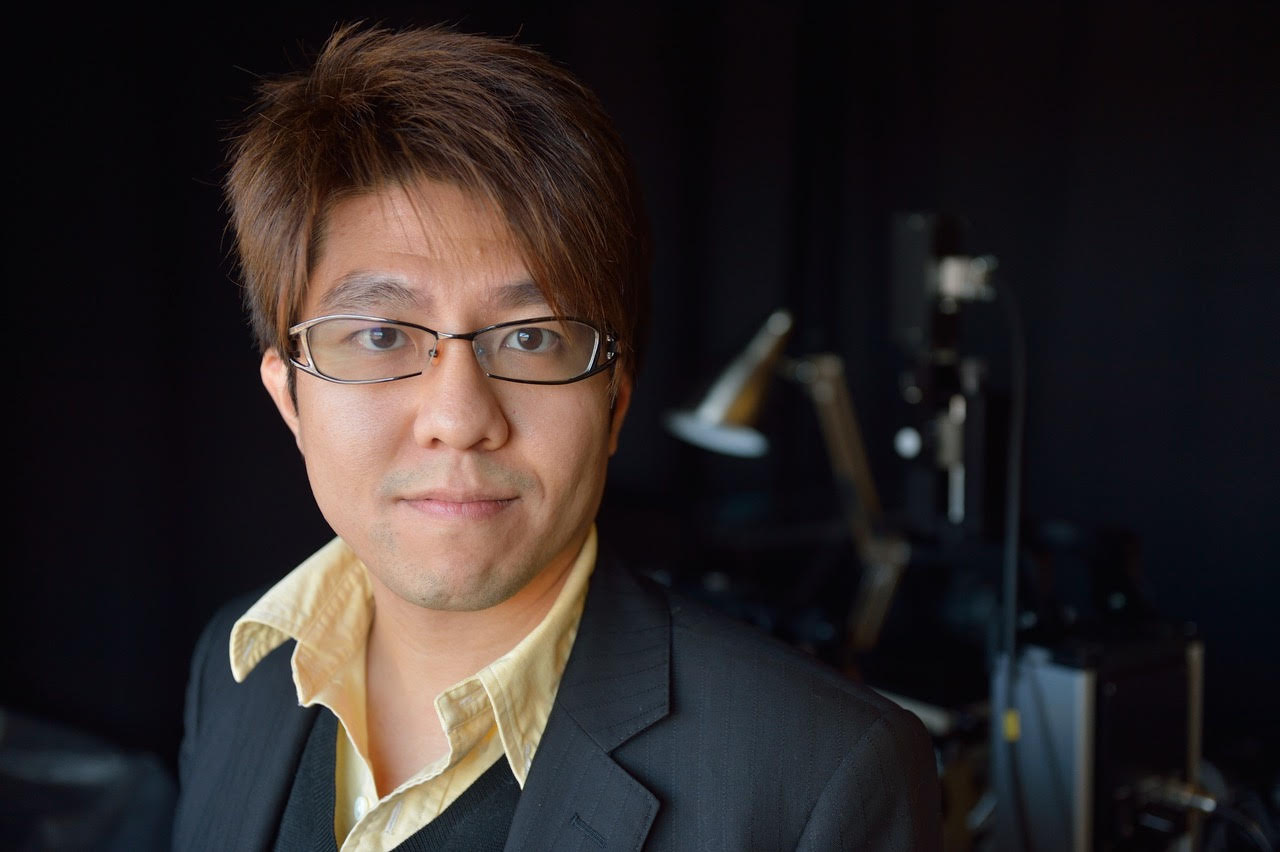
NSF SHAP3D Center Site Director, Professor Anson Ma, has received a prestigious 2020 summer faculty fellowship from the Air Force Research Lab (AFRL) Materials and Manufacturing Directorate. The fellowship is sponsored by the Air Force Office of Scientific Research (AFOSR) with the objectives of enhancing the research interests and capabilities of faculty fellows, elevating the awareness in the U.S. academic community of Air Force research needs, and stimulating professional relationships between the faculty fellows and Air Force researchers.
With the support of this fellowship, Ma and his PhD student, Ethan Chadwick, will be working with researchers at the Wright Patterson Air Force Base on the topic of additive manufacturing, or 3D printing. “I am honored to receive this recognition. My student and I are very excited about the opportunity to interact and work closely with AFRL researchers and other fellowship recipients who are leading experts in their respective research fields,” Ma said.
Ma is the founding Site Director of the NSF SHAP3D center for additive manufacturing at UConn. His research group focuses on understanding fluid dynamics (rheology) and advancing additive manufacturing technologies. Ma has received many accolades, including a National Science Foundation (NSF) CAREER award, Arthur B. Metzner Award from the Society of Rheology, and faculty awards from TA Instruments, 3M, and the American Association of University Professors (AAUP)-UConn Chapter.
For more information on Ma and his research, please visit https://ma.engr.uconn.edu/.